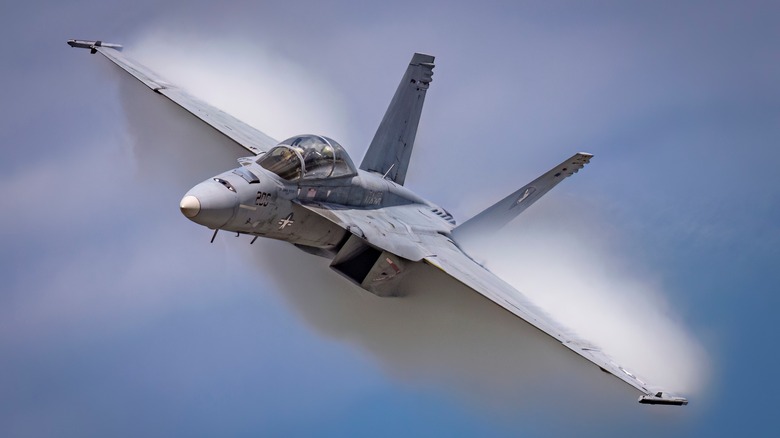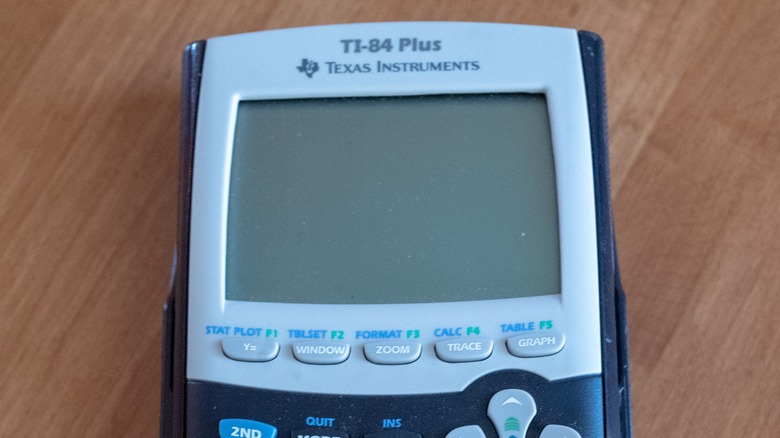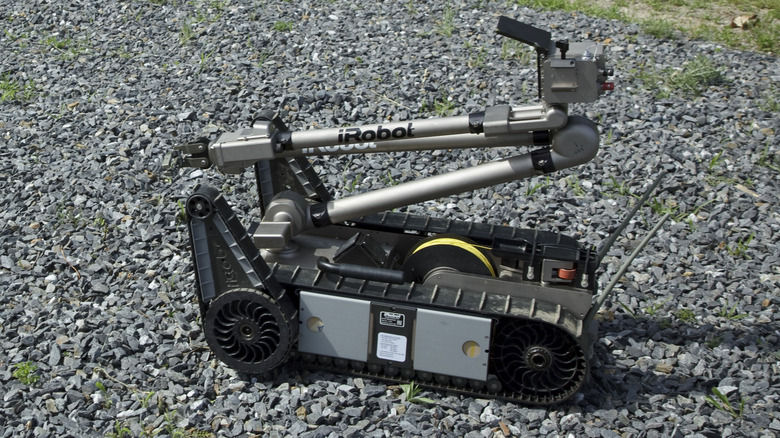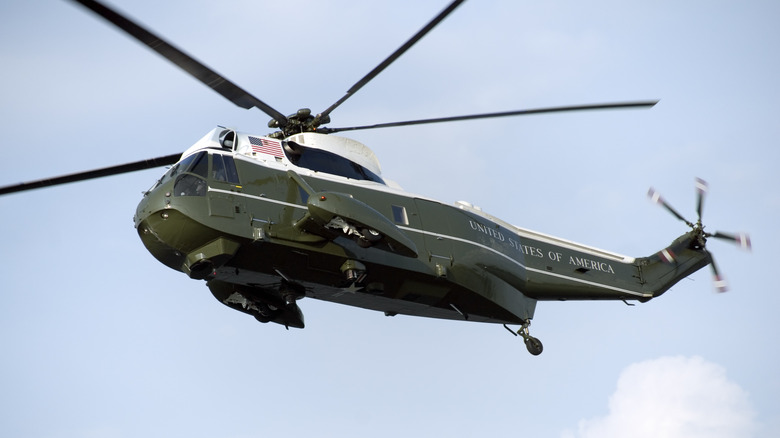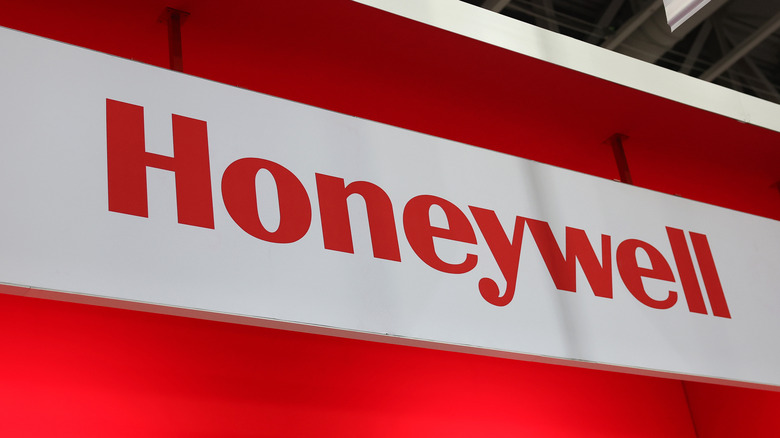5 Household Brands You Didn't Know Made Military Hardware
Some of the biggest brands on the planet have a deadly side hustle. Their products line the shelves of grocery stores, are staples in most households, and keep kids supplied during back-to-school season. But while they help you learn math or enjoy a Pepsi, these companies are also profiting greatly from America's ever-expanding military budget. Not many people would expect a company responsible for soda cans to make laser-guided missile systems or for their thermostat provider to have made napalm.
The deep partnership between America's private sector and its military began in earnest during World War II when the country leveraged its industrial manufacturing industries to shift their production lines away from consumer goods and into weapons, tanks, fighter planes, and more. The wartime economy proved so lucrative for companies that many wanted to stick around for more, and meanwhile, the military recognized the value of offloading research and manufacturing to companies with existing infrastructure. Thus, many corporations have well-developed defense businesses to this day.
The military is so interwoven with private manufacturing that we could run multiple versions of this article without overlap. In fact, we have written an article about some of the biggest companies that make military hardware, and we also ran a piece on common household products invented for the military. In a 2023 report by the Institute for Policy Studies, the average taxpayer was found to fund $1,087 worth of Pentagon contracts each year, along with $298 to the top military contractors, but only $19 for mental health and $11 for combatting homelessness. Here are just a few of the most well-known consumer brands that have made military hardware for Uncle Sam.
Ball
Ball makes many different lines of adorable mason jars, which is probably what you know them for. If not, you'll recognize the name from its appearance on the side of most soda cans, which are also its products. And if you live in the city of Denver, you'll recognize them as the Colorado-based company that purchased the naming rights to the stadium in which the Nuggets and Avalanche play, transforming the Pepsi Center into the Ball Arena. It even has some very cool-sounding sustainability and recycling initiatives to help reuse all those soda cans. But while its public-facing brand and primary moneymaker are all about sustainable beverage packaging, it also operated a multibillion-dollar aerospace division that contracted with multiple federal agencies.
In 2023, Ball Corp. sold its impressive aerospace division to BAE Systems, a U.K.-based weapons maker, in a cash deal of $5.6 billion. This was reportedly in an effort to shave off $10 billion Ball had incurred in debt. But prior to the sale, Ball was responsible for manufacturing bespoke aerial systems and spacecraft for the National Oceanic and Atmospheric Administration (NOAA), the Pentagon, and multiple U.S. intelligence agencies. Perhaps its most humanitarian contribution to society was the Kepler telescope that NASA uses to search for exoplanets that can support life, while its most warlike inventions were laser communication systems that helped drones and infantry stay connected by satellite. When you consider that the company started out making paint cans and glass jars back in the 1880s, the journey from there to an internationally known aerospace firm is quite a strange path indeed.
Texas Instruments
Your first introduction to Texas Instruments was most likely a school-mandated graphing calculator when you started algebra, but if you went on to join the military, you'd soon have grown familiar with the company in the context of its military hardware. Today, although it has long since sold off the bulk of its defense operations, the Lone Star-based electronics company manufactures a whopping 1,724 products for aerospace and defense, with items ranging from microcontrollers and processors to smart munitions. Most of those products are tiny little parts that make larger systems work. For instance, Texas Instruments makes integrated circuits and designs for a seeker front-end system that works with laser-guided munitions.
Texas Instruments has also been involved in more, shall we say, explosive defense projects over the years. It has maintained a close relationship with the U.S. military since 1940, when it was contracted by the Navy to design submarine detection systems. In 1964, it was the first in the world to design a laser-guided bomb, the TI BOLT-117, and was also responsible for the AGM-154 modular precision-attack glide bomb, another guided missile.
In 1997, Texas Instruments sold its defense business to Raytheon for a reported $2.95 billion in cash, a price tag that was considered high at the time. While Texas Instruments still sells its inventory to the defense market, the company no longer appears to rely so heavily on Uncle Sam for its revenue.
iRobot
Yes, the hockey puck-looking robot vacuum people hold responsible for the Roomba also made military hardware. But instead of searching your floors for dirt, the autonomous robots iRobot made for Uncle Sam search enemy territory for bombs to defuse. At least, one model called the Warrior does, as iRobot also made a whole slew of drones that do everything from reconnaissance to bomb disposal. These robots can lift payloads of up to 220 pounds and have even been used to help clear irradiated debris from the site of Japan's Fukushima Daiichi nuclear power plant, which experienced a catastrophic disaster triggered by a tsunami that struck the region in 2011.
This arrangement makes more sense than you might think. If you can develop the technology to surveil every inch of dangerous territory for explosives, you've surely developed at least some of the tech necessary to do the same for cleaning crumbs off a kitchen floor. However, iRobot left the defense business behind in 2016, selling off that wing to Arlington Capital Partners for a reported $45 million, a relatively small price tag for a defense business when compared to some other transactions listed.
General Electric
General Electric is one of the most enduring companies in American history, so it's no surprise that it's been contracting with the Department of Defense for much of its lifespan. If you knew it best from the light bulb aisle, you might be surprised to learn that the company best known as the brainchild of Thomas Edison went on to have a starring role in America's war efforts. After being founded in 1892, by 1941, the company built the I-A, which was the first jet engine in the United States and would go on to be used in the United States military. G.E. would continue to work with the military on aviation, designing even more jet fighters and engines.
As America's appetite for military dominance grew, so did General Electric, and by 1949, it was producing as many as 200 J47 engines each month. Later on, during the Vietnam War, helicopters became essential for navigating the region's difficult terrain, including quick and precise evacuations, and General Electric was contracted to make the T700 turboshaft engine for Black Hawk helicopters. However, it would not deliver them until 1978, three years after the end of the war.
Today, General Electric continues to produce aviation systems and aircraft for the United States Military, as well as for companies like Boeing. Its engines also reside in the C-5 Galaxy transport plane, the F-4 Phantom II, the F-15 fighter jet, the Super Hornet supersonic fighter aircraft, and more. Just for good measure, it also made Marine One, the helicopter that carries the President.
Honeywell
Honeywell is best known to consumers as the company responsible for that crummy thermostat you had in your first apartment or for its equally effective room fans and HEPA air purifiers. Homeowners may know of its various residential security systems. Commercially, it makes security and electrical devices for buildings, barcode and RDID systems for warehouses, and even has a chemical business. But as you might suspect, when a company has a portfolio with such a wide range of different products, they've also got a defense and aerospace wing that sells fan blades for engine turbines.
When it comes to military and defense, Honeywell can help transport troops with tank components and rotorcraft applications, help unleash death and destruction with weapons systems and missile racks, and then save anyone still alive afterward with first aid products. Honeywell is also working on US nuclear weapons facilities and producing components for intercontinental ballistic missiles (ICBM) like the Minuteman III and Trident II.
Honeywell's weapons systems are incredibly precise and see consistent use today. Most recently, it was reported by Aljazeera that a Honeywell precision targeting device was used in an Israeli missile strike that targeted a United Nations-run school in Gaza, killing 40 people, including 14 children and nine women.
